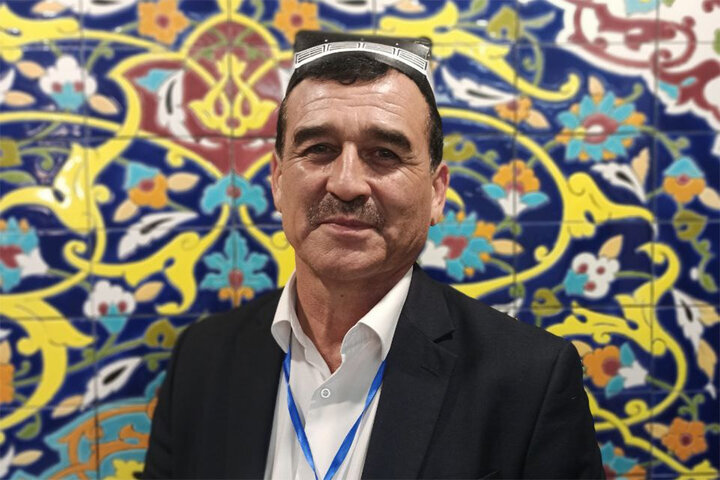Uzbekistans Tavakkal Sultonov shines at Irans childrens theater festival
Uzbekistan’s Tavakkal Sultonov shines at Iran's children’s theater festival
HAMEDAN- The presence of Uzbek director Tavakkal Sultonov in the 29th edition of Iran’s International Theater Festival for Children and Young Adults in Hamedan added a new perspective to the event. His play, “Musical Teahouse,” written by Sergey Sedukhin, captured the attention of audiences and received an award for creativity in direction in the closing ceremony of the event last week.

In an interview with the Tehran Times during his stay in Hamedan, Sultonov expressed his admiration for the architectural style of Hamedan, noting its striking resemblance to his homeland in Uzbekistan. “During our stay in this beautiful city, we felt at home and enjoyed both local and international performances," he shared.
“It’s my first time attending festivals in Iran, and I have thoroughly enjoyed this experience. Over the past few days, I have watched most of the shows and am impressed by the exceptionally high quality of the works presented,” he reflected on the performances.
“I was particularly astonished by the coordination of the shows and the thoughtful selections made by the jury, which I found to be commendable aspects of the festival.”
Sultonov described his experience at the festival as unforgettable: “Despite it being our first time here, we received unprecedented warmth from the people of Hamedan, both during our performances and throughout our brief stay. This has truly amazed me.”
Reflecting on the audience’s connection, he noted, “Interacting with the spectators and feeling their emotions during our performance created an irreplaceable experience for both me and my team.”
Sultonov, speaking to the success of the festival as a global event, declared, “Having attended several festivals in Russia, Turkey, and Kazakhstan, I can say that this festival boasts significantly higher quality. We take pride in our participation here and are thrilled to have had this opportunity.”
He went on to explain the significance of the teahouse in Uzbek culture, stating, “Our play is called 'Musical Teahouse.' The concept of a teahouse exists not only in Uzbekistan but also in Iran, Turkey, and Tajikistan. It serves as a social space where people converse, laugh, and forge human connections.” The costumes in the play reflect the rich heritage of Uzbekistan, with performers wearing traditional national hats that vary in design and color for men and women.
Highlighting the cultural ties between Iran and Uzbekistan, Sultonov remarked on the historical connection to figures like Avicenna, who was born in Bukhara, Uzbekistan. “I am incredibly happy to visit Iran and to pay my respects at the tomb of this great physician and philosopher,” he stated.
He also noted that the cultures of Iran and Uzbekistan have long shared a friendly relationship, maturing together before the time of Avicenna.
Sultonov emphasized the historical friendship between Iran and Uzbekistan, hoping that this bond extends beyond football and into the arts: “When we think of Iran, the first thing that comes to our mind is the friendship we have shared. I hope this connection continues, and we even wish to learn the Persian language.”
Discussing the value of culture and art as means of fostering friendships among nations, he concluded, “Art knows no boundaries, and I firmly believe that culture and art can strengthen our ties and promote peace. We came to Iran with the spirit of friendship in hopes that it persists.”
The 29th Iran’s International Theater Festival for Children and Young Adults was organized by the Dramatic Arts Center of the Ministry of Culture and Islamic Guidance, supported by Hamedan Municipality and in partnership with the Hamedan province's Cultural and Islamic Guidance Office, as well as the Iranian Dramatic Arts Association.
Six international groups from Uzbekistan, Armenia, Iraq, Brazil, Turkey, and Russia, as well as special guests from Morocco, attended this edition of the festival.
The event aimed at enhancing unity and companionship, growth, awareness, and the confidence of Iranian children through the medium of theater as well as achieving social participation of children and adolescents, promoting public culture, strengthening the foundations of family and intergenerational communication, and educating citizens and increasing responsibility through the active participation of Iranian children and adolescents in the production of theatrical works.
With the motto “Theater: Dialogue Without Borders”, the 29th edition of Iran’s International Theater Festival for Children and Young Adults was held from November 1 to 7.
SAB/
source: tehrantimes.com